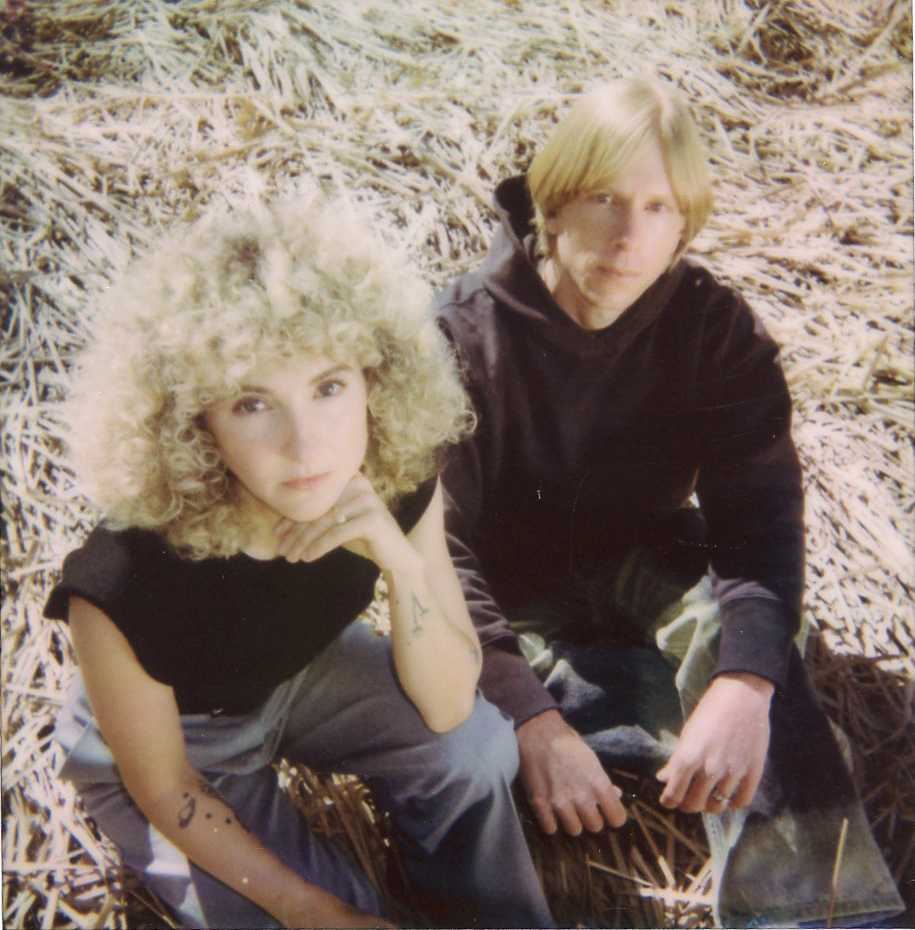Some monumental moments are generally considered milestones of the human experience: graduations, 18th and 21st birthdays, marriage and childbirth, to name a few. But rarely do we give credit to the smaller moments that make up most of our waking years. It’s these seemingly insignificant instances that shape the foundation of our personal evolution — a concept that Tennis explores in great lengths on their new project, Pollen.
For some, it’s a strange spark of inspiration that ignites a newfound curiosity in the world. For others, it’s as simple as hearing their favorite artist for the first time, which inspires them to finally write their own music. For Alaina Moore, one-half of the Denver-based synth-pop duo Tennis, it was a chance encounter with a handsome customer at Zaidy’s Deli in LoDo. His name is Patrick Riley, and he’s the other half of the band.
READ: Tennis Takes Us Through The Meaning of Every Track on Their Album, ‘Swimmer’
“What’s so special about that moment is that it wasn’t really special at all,” Moore said in an exclusive interview with 303 Magazine. “It’s crazy that such a banal experience seeped in everydayness became this life-altering thing. That one moment — which was so unremarkable at the time — completely changed my trajectory. That’s the sort of thing ‘Pollen’ is all about.”
Tennis’s sixth studio album, Pollen, sees the duo coming to terms with their profound, intertwined existence — a relationship that maintains itself as the sole reason both Moore and Riley create music at all.
These days, their relationship looks much different than it did during their first few years together — an evolution you can hear clearly throughout Tennis’s six albums. “I’m realizing now, especially as I’m older, that a lot of what I am doing with Tennis is unpacking our marriage and what that means to me,” Moore said. “And while I’m unpacking our marriage, I’m also defining it in real-time.”
That’s why you can feel each shift, sonically and thematically, throughout Tennis’s discography — each project represents a different chapter in the duo’s marriage and artistic endeavors.
Previous projects saw Moore coming to grips with her new status as a married woman — a milestone she never really desired, or even imagined, for herself until she met Riley. “I resisted marriage my whole life,” Moore said. “So, when I married Patrick, I kind of felt like I was betraying my feminism, in a way. That was tough for me.”
As the years passed, though, Moore made a conscious effort to define her marriage on her own terms. At first, that meant writing all her own material, by herself, in her own room, before finishing tracks with Riley.
“On our previous records, Patrick and I would mostly write alone, share with each other what we had written separately and then collaborate to finish,” Moore said. “At the time, I felt like that was really important to preserve my creative autonomy, especially as a woman. I just wanted to be able to say ‘I wrote this. I know what my voice is.’”
That’s how the duo has always operated until Pollen, which is the first album that sees Tennis working in a wholly collaborative space. The music for every song on Pollen was “written by both of us [Moore and Riley] together in one room.” Creatively, this is a pretty drastic shift from Tennis’s long-established artistic process, and it took a long time (12 years and six albums, to be exact), for the couple to finally get here.
Since releasing Cape Dory in 2011, much of Moore and Riley’s relationship has been defined in the confines of a tour bus, watching the city lights disappear behind them as they made their way to their next big show. In many ways, those intimate moments and quiet struggles have become the foundation of their shared artistic vision and even their marriage.
Here lies the core of Pollen’s ethos: Life — and art — is all about the small stuff.
Take the title track, “Pollen,” for example. On the surface, it’s a playful, albeit frustrated, narrative about Moore’s aggressive allergies to pollen, which has a tendency to derail an otherwise pleasant day as she fights off relentless sneezing bouts and itchy eyes. Of course, that’s not exactly the point. There’s a deeper message here — one that says “there are greater powers at play.”
“One tiny spec of pollen can destroy my entire being,” Moore said. “The power of that little particle is profound to me. That’s how I feel about life too. It’s all about the small moments — the moments you don’t really notice until you look around and suddenly realize that your whole world has shifted.”
Don’t get it twisted — Moore airs more on the side of determinism than destiny. She believes in “happy accidents” more than moments as stepping stones on fate’s winding river. Similarly, she doesn’t believe in a “soul mate.” She does, however, believe that she discovered her life’s purpose with the help of love’s guiding hand. “I believe my purpose here is to build a life with someone I love and then make art together,” Moore said. “Love is the greatest motivator for art besides pain, which are often two sides of the same coin.”
Maybe that’s why Tennis has garnered such a dedicated fan base — their music is authentic; they create art out of love, unconcerned with the bells and whistles of modern-day production gimmicks and TikTok trends. They don’t need a fancy studio to record a great album. In fact, they prefer a more intimate creative space. That’s why they’ve recorded their last few albums in their home studio right here in Denver.
“There’s this sense that if you’re not recording in the fanciest studios, with the most expensive gear, your album won’t hold up under scrutiny or alongside your peers. But that’s just not the case,” Moore said.
Good music isn’t rooted in fancy equipment. Instead, according to Moore, good music is created when an artist taps into the zeitgeist, a concept that Moore ponders often. That’s why Tennis’s signature sound fits just as well on the Hot 100 charts of the early-80s as it does in the “Groovy New Indie” playlists of the mid-2010s — the zeitgeist transcends generations, and so does great music.
“The zeitgeist is always evolving; it’s always pulling from the past — reconstructing it, even. But being an artist means tapping into the zeitgeist. That’s a weird feeling to explain, but you know it when you feel it. It’s like a cosmic connection.”
Tennis’s entire discography is based on quaint moments of determinism, manifested in catchy indie-pop tunes and groovy disco aesthetics that always seem to be in careful alignment with the creative zeitgeist that determines the trends of popular culture. And to think — none of this would have happened if it wasn’t for a chance encounter at an unassuming diner in LoDo. Seems pretty on-brand, don’t you think?











